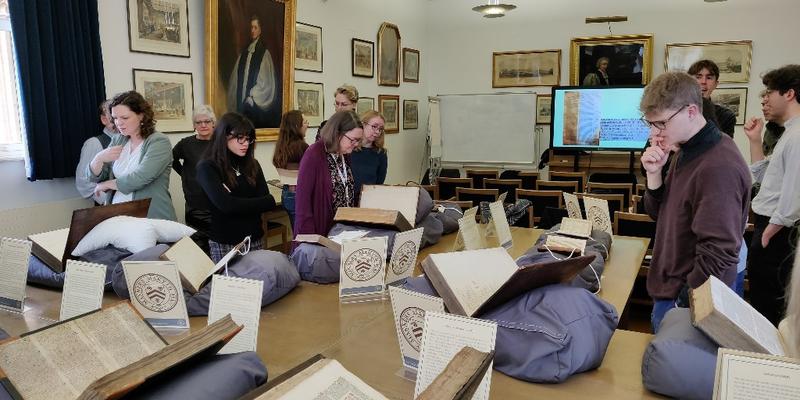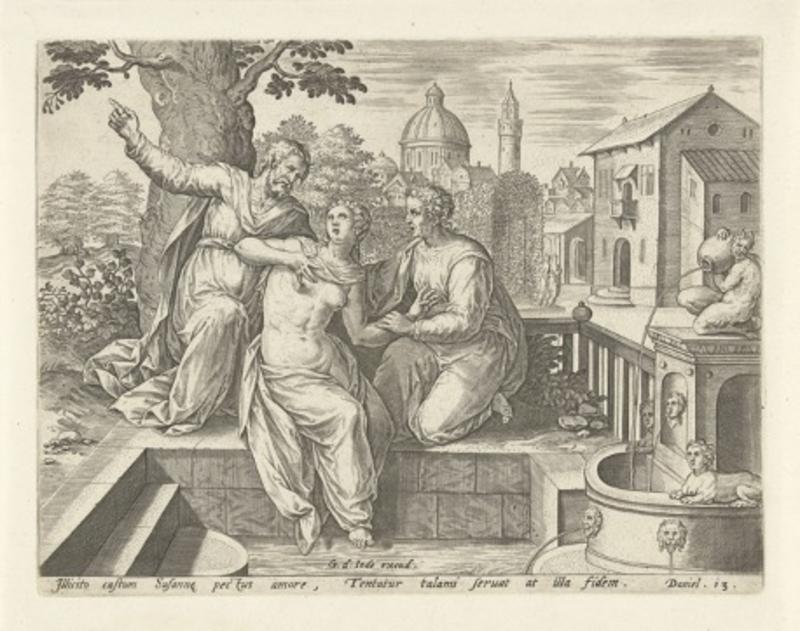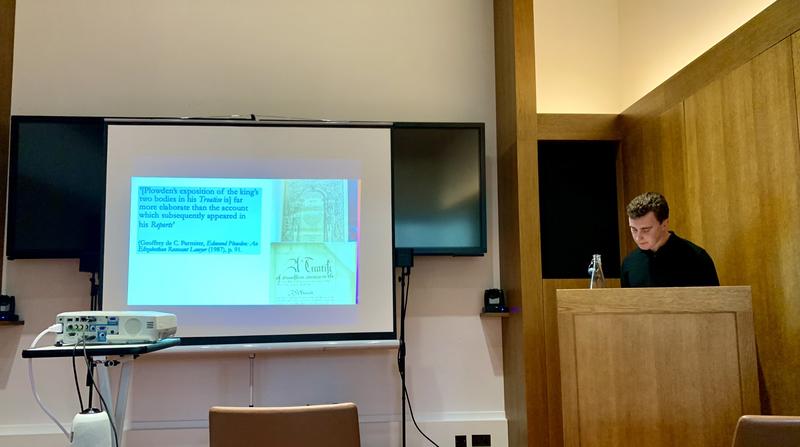Legal-Literary Imagining
On a damp March morning, a group of early modernists –– literary critics, historians and legal scholars from Oxford, London, Sheffield, Birmingham and beyond –– gathered expectantly at New College lodge. They had come for ‘Legal-Literary Imagining: An Early Modern Workshop’. This day–long event, organised by doctoral students at the University of Oxford and supported by the English Faculty, Oxford CEMS and by New College, St John’s and Magdalen, had been advertised as a space in which to discuss questions arising from encounters with early modern legal texts. Current doctoral students (Alex Laar, Herin Han, Dan Haywood, and Jacob Wiseman) and recently doctored ECRs (Lotte Fikkers and Jonathan Powell) undertook to present examples from their work-in-progress, stimulating discussion of how early modernists might approach the legal-literary interface. This discussion began with the most hands-on of literary-legal topics: reading and annotation.
Alex Laar gave an opening lecture on Sir Thomas Smith, author of De Republica Anglorum and sometime Professor Civil Law. How, asked Alex, did Smith read his Corpus Juris Civilis? The question deliberately echoed Lisa Jardine’s and Anthony Grafton’s ground-breaking 1990 article, ‘How Gabriel Harvey read his Livy’. Cogently querying this model, Alex showed us how Smith mapped connections between Roman and English law through a series of symbols, law tablets and crowns. Alex concluded with a powerful new reading of the influence of Roman imperial law on Smith’s conception of monarchy in the De Republica Anglorum. This high-octane start was followed by a wonderful display of notes and doodles in copies of the Corpus Juris Civilis and other legal texts, courtesy of New College’s Head Librarian, Christopher Skelton-Foord.

No-one got lost along the Broad and St Giles as we transferred from New College to St John’s for the second part of the day. Sessions resumed after lunch, with Herin Han and Jake Wiseman speaking about gender and scripture. Herin’s topic was The Lawes Resolution of Women’s Rights (1632), a book much cited by twenty-first century critics and historians, but which Herin, in a persuasive and elegant paper, read as a form of satire: specifically, a satirical paradoxical encomium something like Erasmus’s The Praise of Folly. Jake’s topic was the scriptural story of Susanna and the Elders as evidential paradigm. As well as inspiring erotic paintings, the story of the innocent Susanna’s accusation by the lecherous elders was popular as pedagogic drama, developing the broader forensic concerns of Roman new comedy in Daniel’s examination of the elders’ false witness.

The next session, ‘Common Law and Literary Genre’, showed how the language of dry legal treatises may be infused with literary emotion, while dramatic plots may be shaped by the narrative forms of legal actions. Much literary criticism of Shakespeare and others has been inspired by the doctrine of the ‘King’s Two Bodies’. Dan Haywood explained that Edmund Plowden’s 1567 treatise on the Elizabethan succession is in fact the most elaborate exposition of the King’s Two Bodies doctrine, but vanishingly few critics know anything about it. Dan showed how, contrary to most critical accounts, Plowden’s theory was one of constitutional constraint, but how, at the same time, constitutionalism was expressed in a surprisingly emotive literary language of embodiment. Conversely, Jonathan Powell showed us how, in an ever more crowded London, nuisance-specific actions against playhouse noise or next door’s pigsty avoided the term ‘nuisance’ but developed a language of devising, or plotting. He showed how this shed light on the legal travails of the Whitefriars theatre and on the devices of annoyance at the heart of Ben Jonson’s brilliantly malicious Whitefriars comedy, Epicoene (1609), which is all about aggravating one’s London neighbours.

Throughout these sessions, questions from the floor were as sharp and illuminating as the papers themselves, as participants shared a range of perspectives, experience and knowledge of courts, procedures, and texts. The refreshing candour with which the panellists and participants examined concrete problems arising from their interdisciplinary work-in-progress helped open up wider conceptual questions about legal-literary research. The workshop concluded with a rich and pertinent keynote from Lotte Fikkers of Leiden University, probing the methodological and ontological questions arising from treating women’s legal testimony as a form of ‘life writing’. This fascinating and provocative paper, responded to by Lorna Hutson, elicited a lively and enthusiastic interdisciplinary debate. It was evident that many conversations had been begun, and connections made, that would refine methodologies and take legal, literary, and historical research forward in exciting new directions. Thank you to everyone who participated in making this event such a success.



